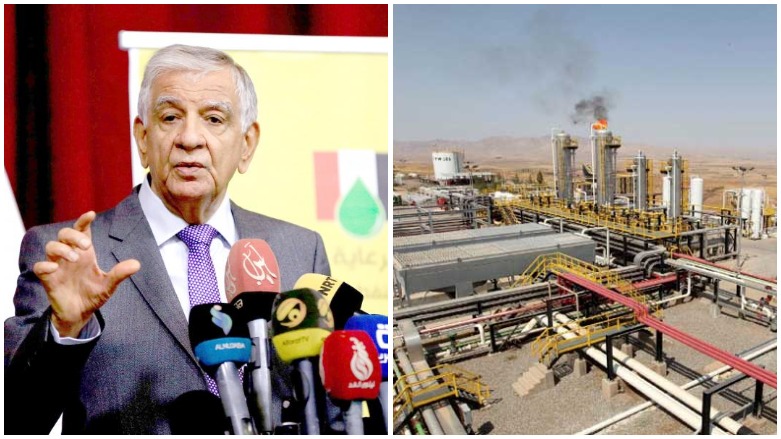Elections campaign, rushed bidding process affects Iraqi oil deals

ERBIL (Kurdistan 24) – A rushed bidding process for its untapped oil and gas resources to foreign developers may have cost Iraq potentially large oil deals.
The date to receive bids from investors abroad was moved in March from late June to April to squeeze the bidding process in before the upcoming parliamentary elections on May 12.
The decision was made by Iraqi Oil Minister Jabar al-Luaibi who is campaigning for a seat in parliament, hoping to represent the oil-rich southern province of Basra as a member of Iraqi Prime Minister Haider al-Abadi’s Al-Nasr (Victory) Alliance.
Some say Luaibi changed the bidding to an earlier date for political reasons.
“Personal and partisan interests are taking priority over national interests,” Ruba Husari, managing director of the consulting firm Iraq Insight, told the Associated Press.
“The objective of the exercise is aimed doubtlessly at portraying the ministry—and the minister—as aggressive in developing the nation’s resources ahead of the [elections],” Husari added.
Since 2009, Iraq has opened its energy and gas resources to international companies. Previous bidding rounds have lasted months. Conferences, road shows, and discussions with the firms interested were held before contracts were issued.
However, in 2018, the short duration left many companies little to no time to study the contracts which had been offered to them. As a result, only nine companies out of the 26 pre-qualified firms participated in the bidding.
A UAE energy company and two firms from China were the only winners in an unusually rushed bidding round for about a dozen hydrocarbon-rich areas, the Arab Weekly reported.
The deals are expected to be signed on May 10, according to the head of the Oil Ministry’s Licensing and Petroleum Contracts Department Abdul-Mahdi al-Ameedi.
Notable oil giants which pulled out included Exxon Mobil, Royal Dutch Shell, the United Kingdom’s BP, China’s CNPC, and Russia’s Lukoil.
Iraq is OPEC’s second-largest producer, behind Saudi Arabia, with a daily production of nearly 4.36 million barrels of oil per day from Baghdad-controlled oil fields.
